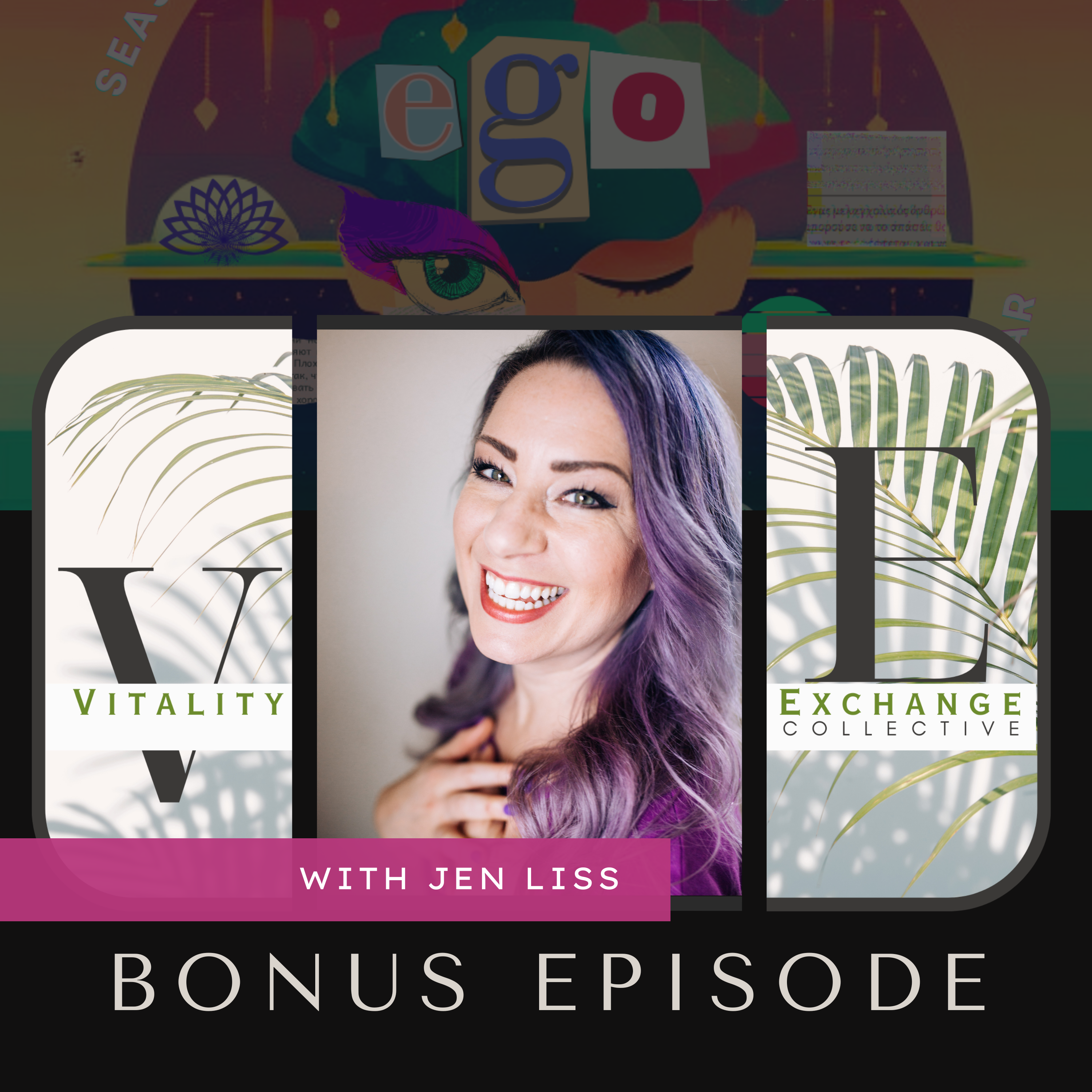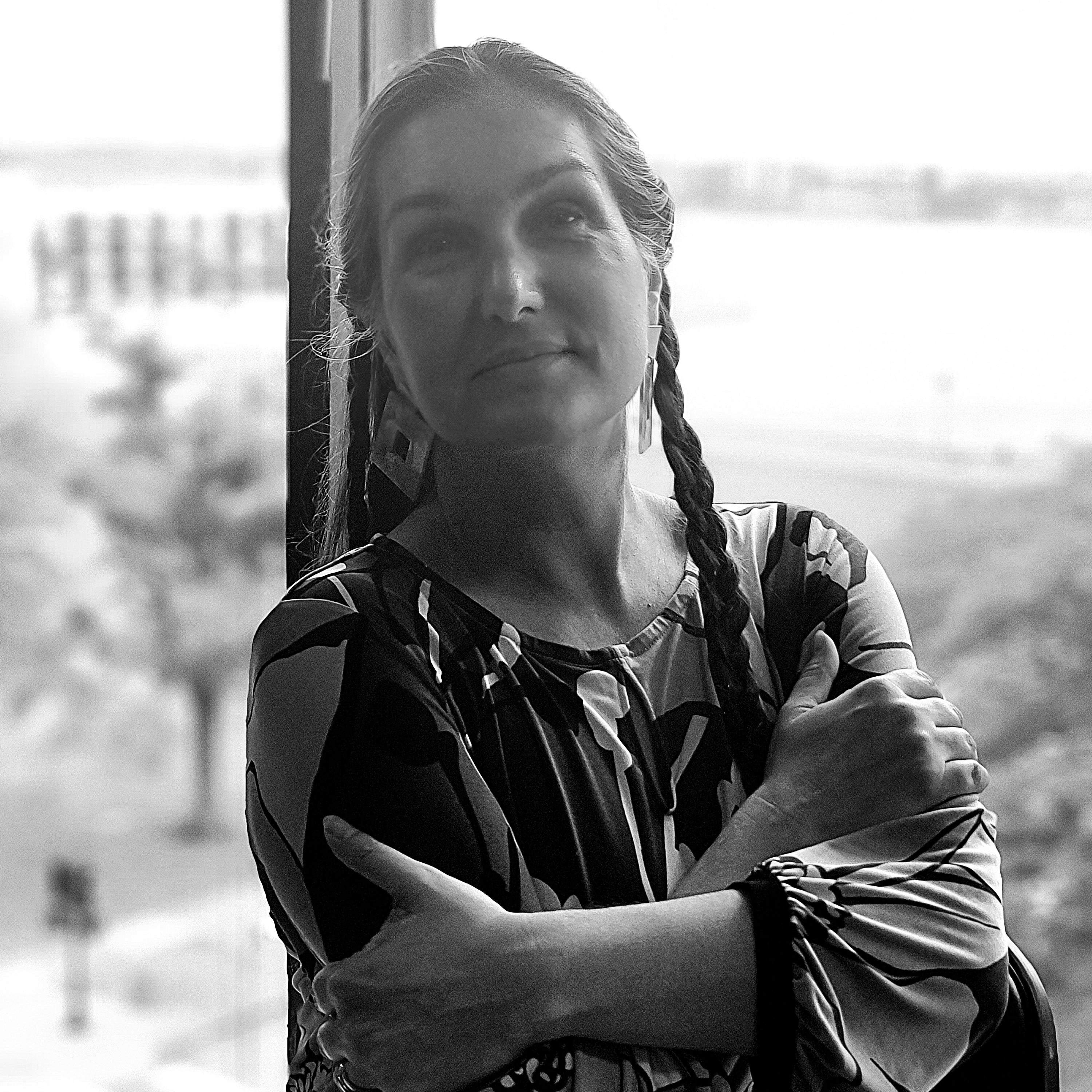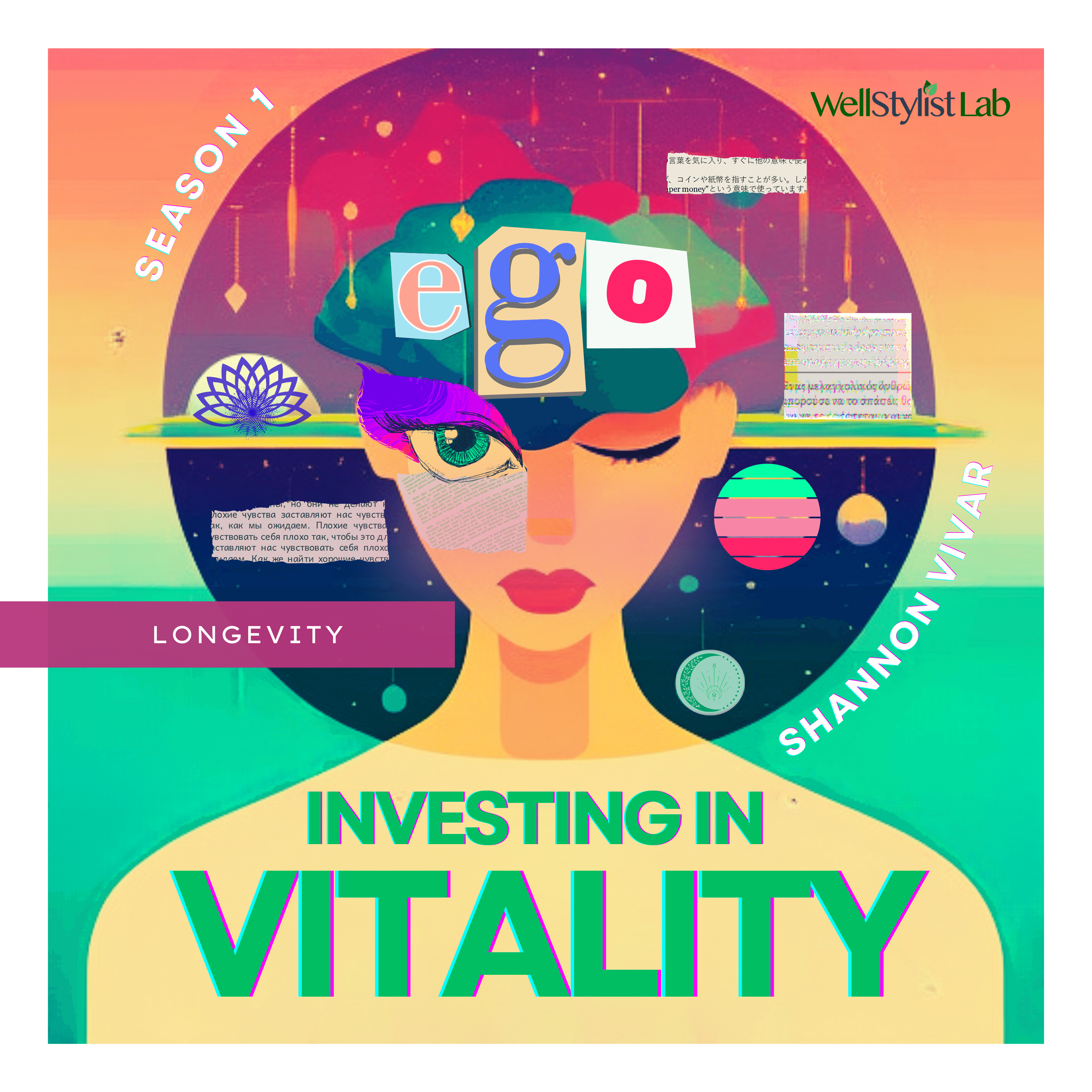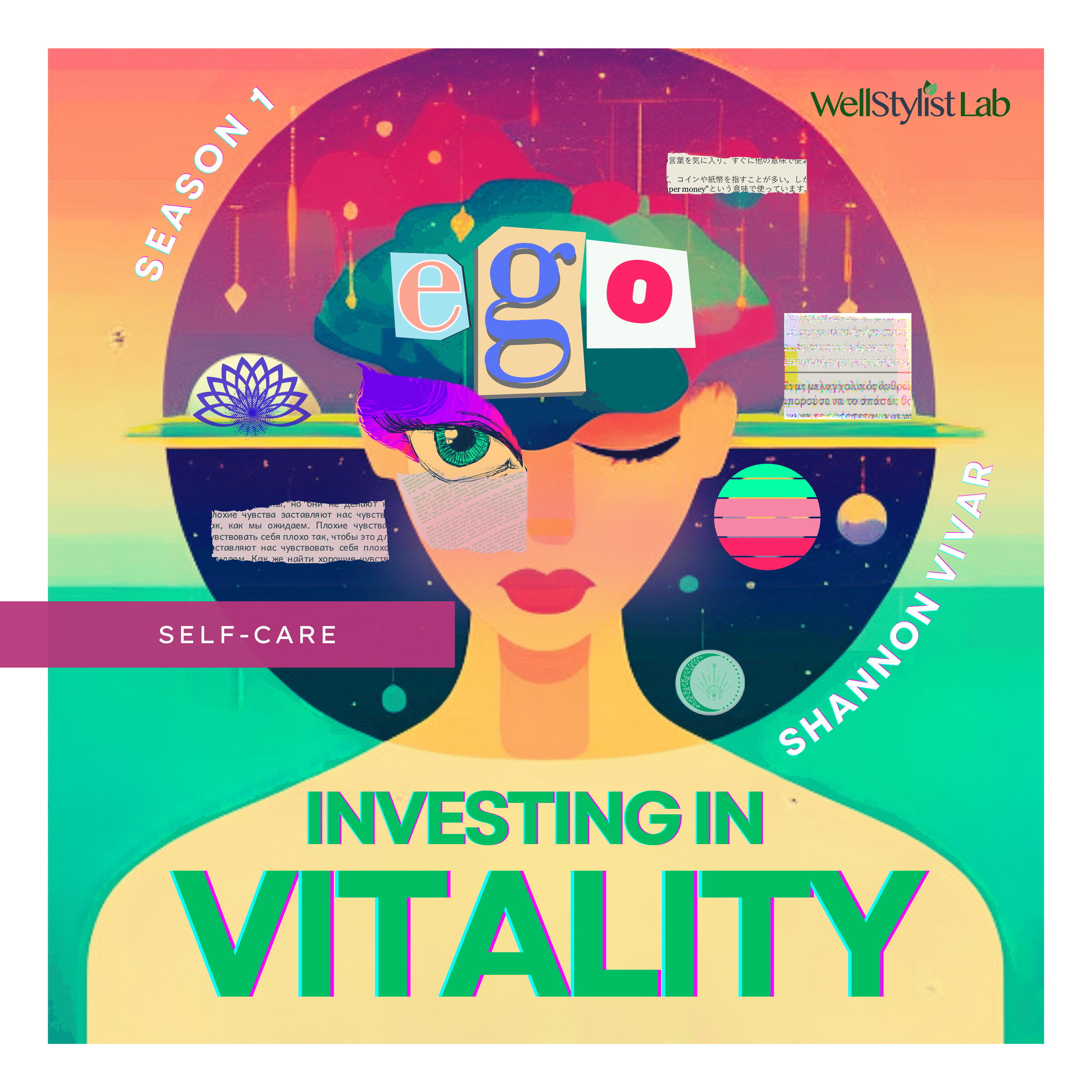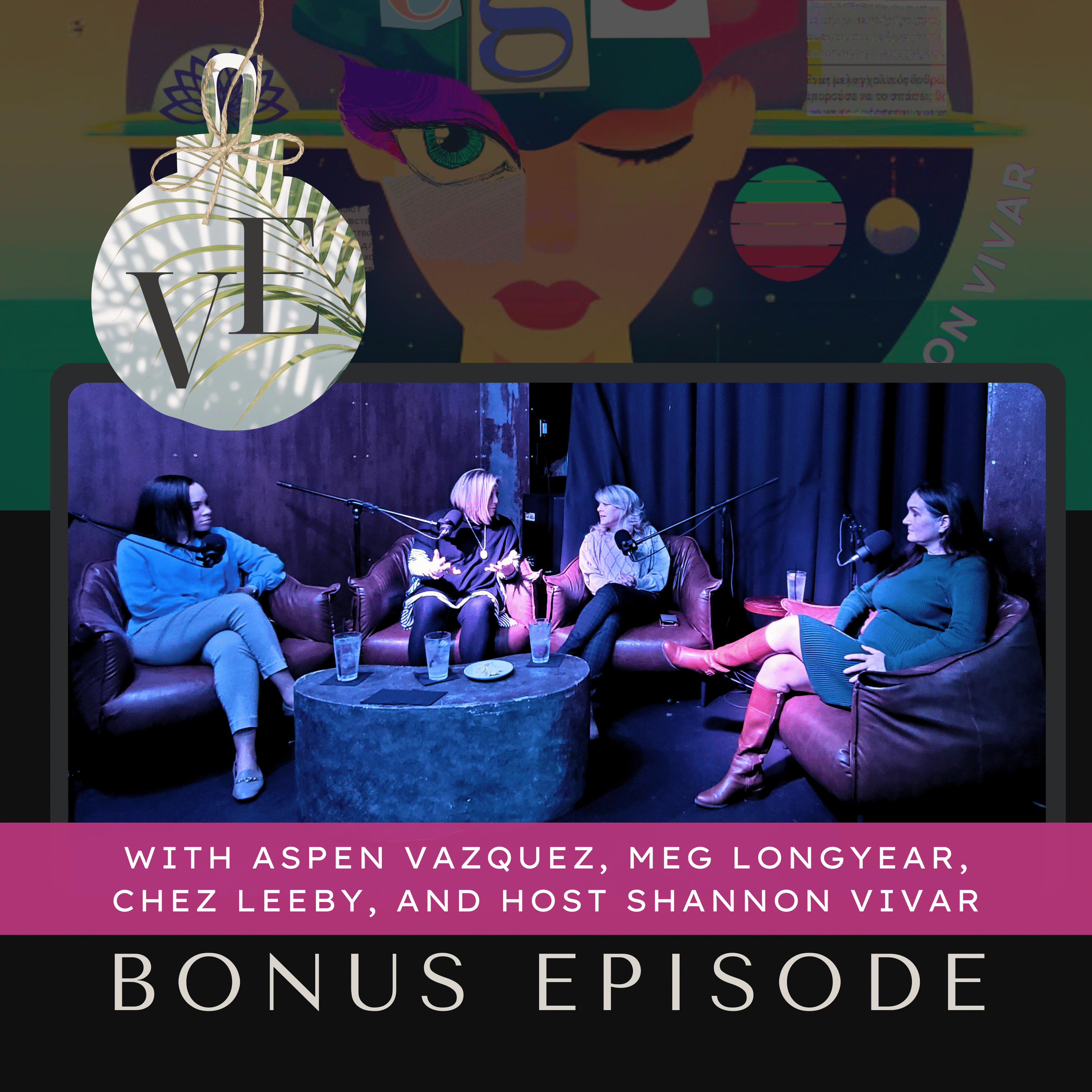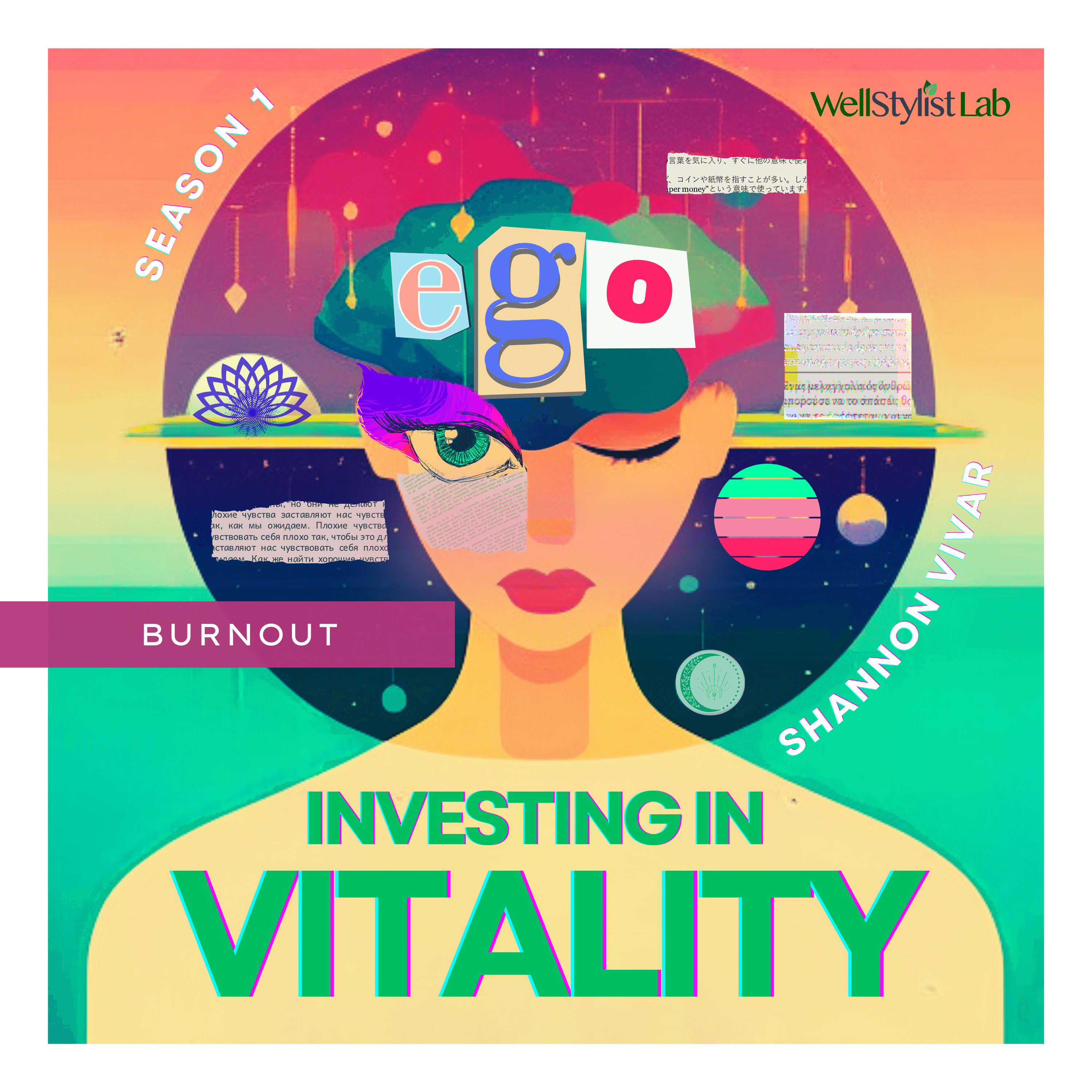Are you feeling weighed down by societal expectations of conformity? Jen Liss, a podcast host and certified breathwork coach, shares her insights on the 'embodiment challenges' and the webs of pressure that we impose on ourselves. Shannon and Jen discuss how you can untether, "drop the backpack" and maximize your potential with the help of conscious leadership and coaching on this bonus episode. Find out more about the 2024 Conscious Leader Wellness Program, presented by the Vitality Exchange Collective at https://wellstylistlab.ck.page/consciousleader/
View Full Transcript
Episode Transcript
Welcome to Vitality Exchange Boosts and Conversations, the interview series behind the Investing in Vitality podcast. On today's bonus episode, I'm sharing a clip from my conversation with Jen Liss, a breathwork coach, and the podcast host of Untethered with Jen Liss. Jen and I talk about all the crap that we carry around with us and how coaches can help you drop the backpack.
The full conversation with Gen List can be found in the Vitality Exchange Group within the Wells Stylists Lab community platform. I'm really fueled by the mission that you have and the idea of becoming a conscious leader because I think there's so much goodness that we could be creating in the world if we all shifted our perspective just a little bit at a time. Absolutely. Like you mentioned, we were in corporate together and it was a challenging time for me, especially when it comes down to, being your authentic self in a corporate environment that has a lot of pressures to fit in with the culture of the company that you're with.
it's interesting what you mentioned about fitting in. So I was a hairstylist for a decade, an entrepreneur, a hairstylist, had my own business. And we worked in a very beige corporate environment.
Let's be real. And I had bright blue hair. Bright blue hair. yes, I'm in the creative group. I'm in the communications group, but it feels different, right? So I think I came in with empathy for human beings because I was a hairstylist for so long.
And also, I myself had this experience of feeling really different than everybody else who was in the environment. And as I was working in this career, in this communications career, I found myself gravitating toward really helping employees to feel seen and heard for their talents and skills .
I coach people and it's what I was doing on the side so much at my job because I found, wow, I feel so fulfilled when I can help somebody take that next step, when I can help them see their gifts, when I can help them grow and through coaching, I can see that progress.
I can see the real actual progress. Somebody go and ask for that raise, somebody see their gifts and see how they can move it forward. And I was able to do some of that within the corporate environment, but it just feels so much more accessible and, doable as a coach. So that's what I do now. I'm a coach and I also do breath work because I've noticed that a lot of people have embodiment challenges and so breath work helps with that .
I wanna know more about embodiment challenges. That's… very interesting to me. I'm sure I have multiple embodiment challenges. So what is an embodiment challenge, Jen? What is it? Most of us, especially, I particularly relate to hyper achievers, people who are really goal-driven, super ambitious.
We are often motivated from outside forces. We are looking to others for praise. Like that's just at the ground level. Outside things motivate us. We are not as internally motivated. And so we get to a point at like 35 to 45, 50, where all of a sudden we realize, I've been doing all this stuff for someone else, not for me.
Like, what do I want? What do I actually even give a crap about? I've been achieving all these years. I've been climbing the corporate ladder. I've been like working so hard and I don't even really understand how it's fulfilling me. So that's the base problem. And it's really rooted in 'I don't have actual connection in my physical body to my own emotions, feelings, thoughts, behaviors.
I don't even know why I'm doing things.' So embodiment work helps people to bring their awareness back into feeling our feelings, feeling our emotions. And then breath work also is meditative, so it creates space between those feelings and the mind so that you can drop in and be an observer of the feelings that you are having so that you can make more logical decisions about what you wanna do.
That's a lot to unpack. Does this make sense to you? Yeah, it's a lot. You mean I'm not allowed to put emotions in my backpack and not, not remember 'em and forget 'em? Just they're back there. But that's okay. I'm not allowed to do that? You can, but it hurts eventually. It's like every time you stick that back in your backpack, it's getting heavier and heavier and heavier.
So instead of you processing those emotions and letting them go, you're putting 'em in a backpack that you're carrying. That's what we don't realize is like how strenuous that is. And it's really suffering. Not allowing ourselves to feel our feelings creates long-term suffering instead of the short-term pain of the experience.
We have the backpack full of crap that we don't even realize we're carrying around anymore. . And so we're like trying to sprint on our achievement path carrying that dang backpack, right? Like it's hard and we get exhausted. We're tired. Yeah. And we don't even know why we're doing it. Why am I on this path with this damn backpack?
Yeah. Like wait, I thought this was actually going to bring me satisfaction and yet every single time I have an achievement, there's no satisfaction cuz I'm onto the next thing I can definitely relate to that. And if we think about the corporate environment, You've got millions of people in the same situation who are all like trying to achieve and trying to contribute.
And I think the best of people. I think people really want to contribute . At the heart of it, like, we want to contribute. We want to shine our gifts. We want to make a difference in the world. We want to do these things, but we have this backpack situation. We've got what we talked about earlier with the corporate structure not really made in such a way that it helps us to grow in that way.
And it's just coming to a head for so many people. Well, yeah, it just makes you start to question everything. I've gone through a journey of trying to figure out what I wanna be when I grow up.
And I'm realizing I don't believe all the things that I've been told my entire life. And then trying to deprogram 40 plus years of education, the things that you were taught, oh, that's how you're supposed to act.
tHere's just so much artificial pressure that we put on ourselves to achieve and then when we achieve them and we start to say why am I not satisfied with who I am or what I'm becoming or what I have.
Like where does that satisfaction begin? And, I've decided it's not at retirement. I'm not gonna wait to start figuring that out
it's hard to deprogram yourself. . It's painful.
It's painful when you realize that what you've been going through, and then it can add that extra layer of pain when we realize that we've been doing it to ourselves, and then we can shame ourselves or feel guilty for the pain that we caused ourselves. And so it's a real rabbit hole that we can end up going down and it's an unraveling, which is why my podcast and my business is called Untethered because I believe that we have just every relationship we have, every choice we make, every decision…
it's a web. And every time that we make a change that web is shifted and it becomes really uncomfortable. And when you really start to get to the root of these things, like you have to untether it, and be okay with starting fresh and like you said, what is the life that I want to craft? Do I care about all of these things that I've surrounded myself with? Do I really care about that? What do I care about? Yeah. And I think you still wanna fit into your crowd, right?
And so when you start to change and you don't believe certain things, like you're untethering from your group, so I think that there's that feeling of isolation and loss and separation I think change is hard. At the end of the day, you can't change anybody but yourself. You're gonna shift and other people aren't gonna shift. And that's also part of the work that you have to work through.
It's not just knowledge. I wish it was just knowledge. Knowledge is like 10% of the work. And so, yeah, I agree. I have an embodiment challenge that I'm working through.
We all do. We all do.
what do you tell your coaching clients or even how do you get them inspired to have the courage to take a leap of faith, to step outside of their comfort zone That has to be 90% of your coaching.
Yeah, it is. Because really what a coach does is hold more belief for your possibilities and your joy and your purpose than what you currently have. Like that's why we lean to coaches is for somebody to hold that belief for you. Because as we've been talking about, it's so hard with all the societal expectations, the person who we think we should be, the person who everybody else thinks we should be, we're living in that bubble.
A coach is outside the bubble and can say, 'Hey, I've got a light. I'm shining a light on the better path that's for you. The path that's meant for you, what you really could be doing. So how I motivate them is just what is helping people get to the core of their purpose and seeing that it's there. And then what is the cost of not getting there? What is the cost to you? What is the cost to your family? What is the cost to your children, to the future?
If you don't do that thing that you are really meant to do, if you don't live your path of greatest joy and you don't offer the magic that is literally inside of you, that you are meant to be putting out into the world, like what is the harm that you're causing yourself and others by not doing that? So it's that like, here it is and showing the suffering that we're living in and how just facing these little pieces of pain one thing at a time will help get you to that better place.
Thank you for listening. Check out the Vitality Exchange for more resources, interaction, and online masterclasses. I'm thrilled to announce that Jen Liss will be one of the certified Wellness coaches supporting the Vitality Exchange Collective's new Conscious Leader Wellness Program in 2024.
This seven month program helps leaders explore a new definition of success, one that incorporates wellness and daily decisions of embracing joy in our everyday lives at home and at work. You can visit Jen's [email protected] or follow her on Instagram at untethered Jen. Next week be on the lookout for investing in Vitality, episode seven on self-care and the beauty industry.
